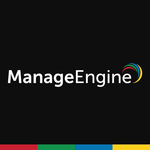What is IT Service Management (ITSM) Software?
ITSM (IT Service Management) software aims to simplify company IT operations. It helps with efficient provision, administration, and maintenance of IT solutions. Important elements are incident management, problem-solving, and change-management. It ensures that IT processes complement company goals, hence enhancing output and quality of services. ITSM software is crucial in the modern corporate environment where companies are depending more and more on IT services and technology is continually changing. As more businesses digitise their operations, the demand for ITSM software solutions has skyrocketed.
Why Do You Need IT Service Management (ITSM) Software?
Cmpanies must maximise their IT processes by means of software for IT service management (ITSM). ITSM increases efficiency by automating repetitive tasks and removing human mistake. Faster problem solving and improved resource management help to raise the quality of the services. This program support desk system guarantees that the IT infrastructure of the company follows relevant local, national, and international standards. Moreover, ITSM systems provide valuable information to help companies in IT investment optimization and decision-making.
ITSM software offers many features to help companies. These cover change and release management, incident and problem management, asset and configuration management, and service catalogue management. These features help companies to effectively control changes, quickly handle IT problems, track their assets, and offer services via a one-system approach.ITSM systems also enable remote work by allowing staff members anywhere, at any time access to the tools and data required. In the present digital era, where remote work is getting more and more frequent, businesses must remain adaptable and competitive depending on this ability.
Apart from improving output and simplifying processes, ITSM tools help to promote cooperation among several departments of a firm. With a centralised system and real-time communication, teams can quickly address problems and offer services on schedule. Moreover, ITSM tools are flexible enough to satisfy the particular needs of every company. This helps companies to adapt the software to their particular requirements, therefore optimizing its effectiveness and ensuring optimal return on investment.
Why is IT Service Management (ITSM) Software Important?
Modern businesses absolutely depend on software for IT service management, or ITSM. It simplifies IT processes, lowers downtime, and increases production. ITSM software guarantees fast resolution of issues, therefore enabling better incident and problem management. By allowing IT operations a clear structure, it also improves customer satisfaction and service performance. We will review the primary arguments for why businesses in this area find ITSM software to be absolutely vital.
1. Simplifies IT Procedures
IT asset management systems help companies simplify their IT operations by automating standardising processes and repeated tasks. This reduces the potential of human mistake and speeds up and increases accuracy of service delivery. Having a consolidated approach to manage all IT operations helps companies save time and effort.
2. Boosts Productivity
Any company has to be efficient, but in the hectic digital environment of today especially so. Using ITSM software helps organizations to reduce reaction times and streamline procedures, hence enhancing production. Real-time analytics and data it provides also enable businesses to identify areas of concern and make well-informed decisions.
3. Cuts Down on Unavailable Time
In terms of lost sales and damaged brands, downtime might be costly for companies. ITSM software minimizes downtime by automatically starting resolution processes and aggressively spotting likely issues. This ensures quick fixing of service outages, therefore restricting the impact on business operations.
. Benefits of Using IT Service Management (ITSM) Software
Automating boring tasks and streamlining processes helps employees to focus on more important work.
Using incident tracking and responsibility assignment, managers can react quickly to fix problems before they get more serious.
Reducing downtime and improving resource management helps companies to save costs and more cleverly use their resources.
Improved User Experience: Faster problem solutions produce happy consumers. Offering exceptional customer service with fast response times helps companies to maintain their devoted clientele and enhance their reputation.
Using analytics and data reporting helps companies to make wise decisions and plan for future growth.
Organizations that increase production, efficiency, and responsibility while improving customer service and making data-driven decisions will be able to develop a competitive advantage in their field.
Agile Adaptability: Today's fast-paced corporate climate requires flexibility if one is to succeed. Having an automated system in place helps companies to quickly and effortlessly adapt to changes.
Sustainability: Reducing waste and best use of resources helps simplifying processes and eliminating downtime not only saves money but also aids to create a more sustainable environment.
Automation can release employees from time-consuming tasks so they can focus on more critical work, hence increasing their job satisfaction and motivation. From this, a more content and involved workforce could result.
How Does IT Service Management (ITSM) Software Work?
IT service management (ITSM) applications arrange and simplify IT offerings. It works by providing IT teams with a centralized venue to manage assets, incidents, requests, and changes. The application uses pre-defined processes to assure that every service demand follows a specific path, therefore boosting output. ITSM technologies are being increasingly used by companies to maximize internal IT practices and enhance customer service.
ITSM software is becoming increasingly important for companies trying to enhance internal IT processes and customer service. Given the rise in digital transformation and increased reliance on technology, companies must keep competitive in the market by using effective ITSM solutions.
One of ITSM program's primary benefits is its ability to centralize all IT service management processes. Because they have a single, consistent picture of events, requests, changes, and assets, teams can now more successfully monitor and handle them. It also eliminates the need for many tools and labor-intensive, error-prone hand-operated techniques.
Furthermore, ITSM software guides teams through every service request using pre-defined processes, therefore guaranteeing consistency and standardization. Apart from increasing efficiency, this enhances the client experience by providing a flawless and simplified approach for handling problems and fulfilling needs.
Moreover, ITSM technologies include analytics tools and complete reporting capabilities that help companies grasp their IT systems. By highlighting opportunities for development and guiding data-driven decisions, a thorough view of data—including issue quantities, reaction times, and resource allocation—helps companies maximize their IT services.
Features Of IT Service Management (ITSM) Software
ITSM software drives centralised, automated IT processes. Among the main functions are integrated knowledge base software for incident management tracking IT issues, change management for supervising changes, and troubleshooting. Self-service portals let users resolve problems on their own, therefore relieving the IT personnel of some of their responsibilities. Service level management tracks production in respect to set standards. Furthermore, the application tracks IT resources over time therefore offering asset management. ITSM tools support root cause analysis, problem management, service catalogue management, and root cause analysis. ITSM tools have evolved in reaction to changing corporate needs. Modern ITSM systems have several basic purposes as follows:
1. Integration and Automation
Modern ITSM systems not only link with other systems like project management or customer relationship management (CRM) systems but also automate repetitive tasks. The streamlining of the workflow and less manual labor needed will provide the IT personnel more time to focus on other crucial tasks.
2. Compliance Supervision
The increasing legal responsibilities make compliance management an essential part of ITSM systems. It helps businesses make sure their practices follow industry standards and regulations.
3. Portable Access
Today's workforce is more mobile, and ITSM software makes it simple to obtain services and support wherever and whenever you most need them. This tool makes remote workers able to quickly address issues, hence boosting production.
4. Analytics and Reporting
Through complete reporting and analytics tools, ITSM software enables companies to better grasp their IT processes. By means of this information, one can identify trends, track performance metrics, and confidently choose process improvements.
5. Self-Service Features
Self-service portals let end users manage common issues without calling the IT staff. This function reduces the effort for the IT personnel by motivating user self-sufficiency and decreasing the amount of service desk queries. Using artificial intelligence (AI) and machine learning (ML), ITM systems predictively maintain systems and streamline processes. These systems can look at data from numerous sources, automate processes, and identify anomalies suggesting prospective issues before they develop.
6. Cooperation Instruments
Good communication is really important for IT service management. Its integrated collaboration features help team members to communicate effectively, hence improving processes of problem-solving and decision-making.
Types of IT Service Management (ITSM) Software
ITSM software abound in diversity, each fulfilling specific company needs. Here are some common types:
Service Desk, which handles problems and service requests, is the center of ITSM.
Self-service lets clients solve issues on their own free from IT's help.
1. Knowledge Management:
Information is concentrated for simple access and problem resolution.
2. Analytics and Reporting:
clarifies areas requiring development and provide understanding of service performance.
3. Compliant with ITIL:
follows the advised procedures of the Information Technology Infrastructure Library (ITIL).
4. Administration of Assets:
Monitors and oversees the lifetime of IT resources.
5. Management of Change:
Oversees changes to infrastructure and IT services.
Management of Configurations: Trackers of IT resource and setting conditions.
How IT Service Management (ITSM) Software Can Help Your Business?
Implementing IT Service Management (ITMS) tools will help your business to simplify its procedures. It makes good administration and provision of premium IT services possible. The program automatically handles routine tasks, therefore lowering mistakes and saving time. Information centralizing promises faster issue solving and better communication. By raising customer satisfaction and production, ITSM tools can provide companies where they are rapidly growing—a competitive edge.
Thanks to the arrival of digital transformation, companies are depending more and more on IT infrastructure to perform effectively and offer services. Effective and consistent IT service management is now very crucial in the hectic corporate environment of today. ITSM tools help companies to improve general efficiency and simplify procedures. By centralising data and automating repetitious tasks, it helps businesses to focus on giving their customers premium services.
Using ITSM software can help companies get a significant competitive edge since the market is very competitive. By raising output and addressing problems faster, companies may promptly satisfy client needs and keep a happy clientele.
ITSM tools can also help companies follow industry best standards and legal requirements. It provides a consistent framework for managing IT services, therefore ensuring consistency and adherence to rules throughout all operations. Through first-rate customer service, companies can enhance their external reputation in addition to their internal operations using ITSM software. This builds market credibility and trust, hence strengthening customer loyalty and retention.
What Are The IT Service Management (ITSM) Software Challenges
Implementing ITMS could prove difficult. One main challenge is integration. Many companies use many systems, and ensuring them interact correctly can prove difficult. User adoption presents another issue. Workers might choose tried-and-true methods over newly acquired tools. Personalisation might also provide difficulties. Changing the program to fit specific criteria usually requires time, knowledge, and tools. Additionally needed are ongoing ITSM software updates and maintenance. These roles could be demanding for IT organizations. One must find a mix between cost and usefulness. Companies have to figure out how to meet their needs without running over expenses.
1. Integration Difficulties
Integration of ITSM software with existent systems might provide major difficulties for businesses. Making sure many tools and programs run in concert is difficult. This could lead to general inefficiencies, breakdown of communication, and data discrepancies.
To overcome this challenge, it is essential to provide suitable integration testing before deployment and fully evaluate the interoperability of the ITSM software with other systems. Including experts or consultants with system integration knowledge could also be beneficial to support this process.
2. Difficulties in User Adoption
When employees are used to their current procedures, they often object to new technology deployment. The efficient application of ITSM software could be seriously hampered by this. Organizations should focus on stressing the benefits of the new system and providing staff members with the required tools and training to help them to overcome this challenge.
Including staff members in decision-making and getting their opinions as the strategy is being carried out can also help to ensure that their needs are being met. An easy-to-use interface and design help to encourage employee adoption as well.
3. Customisation Difficulties
ITSM software modification is absolutely important since every company uses various procedures and systems. Still, this can also be a challenging project requiring money, knowledge, and patience. Organisations have to carefully evaluate and prioritise their customising requirements to avoid overcomplicating the process.
Including significant participants in the customisation process and having a strong awareness of the corporate needs will help to tackle this challenge. Additionally helpful would be closely working with the ITSM software supplier to leverage their knowledge and help in customizing the solution.
How to Choose the Right Online IT Service Management (ITSM) Software
Choosing the finest online ITSM system calls for focus and clarity. Find first the particular needs and challenges your business faces. Review basic capabilities including change management, problem, and event functions. Make sure the program encourages acceptance by being user-friendly. Try to find if your present systems can be combined with them.
Consider the vendor's support services last as well as the price. Once you have identified the needs and pain points of your company, giving them top priority is vital. This will help you to choose the best suitable alternative for your requirements and help to lower the total number of viable ITSM solutions. Another crucial component is user-friendliness.
A complex or maybe confusing interface can cause staff members to object and limit uptake. Make sure the program is usable before deciding on it. Furthermore crucial are integration features since they enable seamless system-to---system communication and cooperation. Look for programs that allow connection with your current systems and tools if you want flawless operations.
How Your Business Is Supported By IT Service Management (ITSM) Software
Supporting companies depends much on IT Service Management (ITMS) tools. It guarantees constant service delivery, improves efficiency, and simplifies procedures. Using ITSM tools might help companies listed on sites like SaaSCounters to increase operational excellence and customer happiness. Investing in the correct ITSM technologies helps companies remain competitive and flexible in a market always changing. ITSM systems also frequently interface with other systems and technologies, therefore enabling companies to manage their IT operations from a more complete standpoint. Along with better communication and cooperation among several departments inside a company, this can help to save costs.



